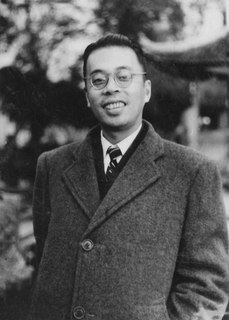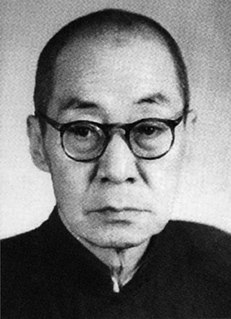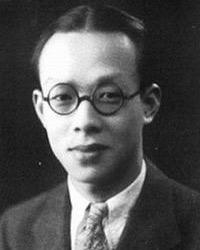 W
WChen Hengzhe, pen name Sophia H. Z. Chen, was a pioneering writer in modern vernacular Chinese literature, a leader in the New Culture Movement, and the first female professor at a Chinese university. Chen is known for aiming to educate Chinese people by incorporating values from both Western culture and Chinese culture, producing many works reflecting these values.
 W
WChu Guangxi was a Tang Dynasty poet.
 W
WDuan Yucai (1735–1815), courtesy name Ruoying (若膺) was a Chinese philologist of the Qing Dynasty. He made great contributions to the study of Historical Chinese phonology, and is known for his annotated edition of Shuowen Jiezi.
 W
WHong Liangji, courtesy names Junzhi (君直) and Zhicun (稚存), was a Chinese scholar, statesman, political theorist, and philosopher. He was most famous for his critical essay to the Jiaqing Emperor, which resulted in his banishment to Yili in Xinjiang. In modern times, he is best remembered for his essay Zhi Ping Pian on population growth and its sociopolitical consequence, in which he raised many of the same issues that were raised by Malthus writing during the same period in England.
 W
WHong Shen was a Chinese playwright, film director and screenwriter, film and drama theorist, and educator. He is considered by drama historians as one of the three founders of Chinese spoken drama, together with Tian Han and Ouyang Yuqian. He wrote the first Chinese film script, Mrs. Shentu.
 W
WJiang Chunfang was a Chinese translator, educationist, and one of the founders of the Encyclopedia of China. He was born in Changzhou, Jiangsu. He had a number of aliases, including Lin Ling (林陵), Shi Yun (什雲), and Cai Yun (蔡雲).
 W
WLü Simian was a prominent Chinese historian. He was a former professor and history department head at Kwang Hua University, a predecessor of the East China Normal University in Shanghai. Lü took the courtesy name Chéngzhī (诚之) and wrote under the pseudonym Núniú (驽牛). His students included famous historians Ch'ien Mu and Yang Kuan. Historian Yan Gengwang (严耕望) considered Lü one of the four greatest modern Chinese historians, along with his student Ch'ien Mu, Chen Yuan, and Chen Yinke.
 W
WQu Qiubai was a leader of the Communist Party of China in the late 1920s. He was born in Changzhou, Jiangsu, China.
 W
WWu Zhihui, also known as Woo Tsin-hang or Wu Shi-Fee, was a Chinese linguist and philosopher who was the chairman of the 1912–13 Commission on the Unification of Pronunciation that created Zhuyin and standardized Guoyu pronunciation.
 W
WYan Jiaqi is a Chinese political scientist and dissident.
 W
WYun Zhu or Wanglan Yun Zhu aka Adept of the Lotus Lake was a Qing dynasty poet, painter, anthologist and moralist. She gathered together thousands of poems written by hundreds of women.
 W
WZhou Youguang, also known as Chou Yu-kuang or Chou Yao-ping, was a Chinese economist, banker, linguist, sinologist, publisher, and supercentenarian, known as the "father of Pinyin", a system for the writing of Mandarin Chinese in Roman script, or romanization, which was officially adopted by the government of the People's Republic of China in 1958, the International Organization for Standardization (ISO) in 1982, and the United Nations in 1986.